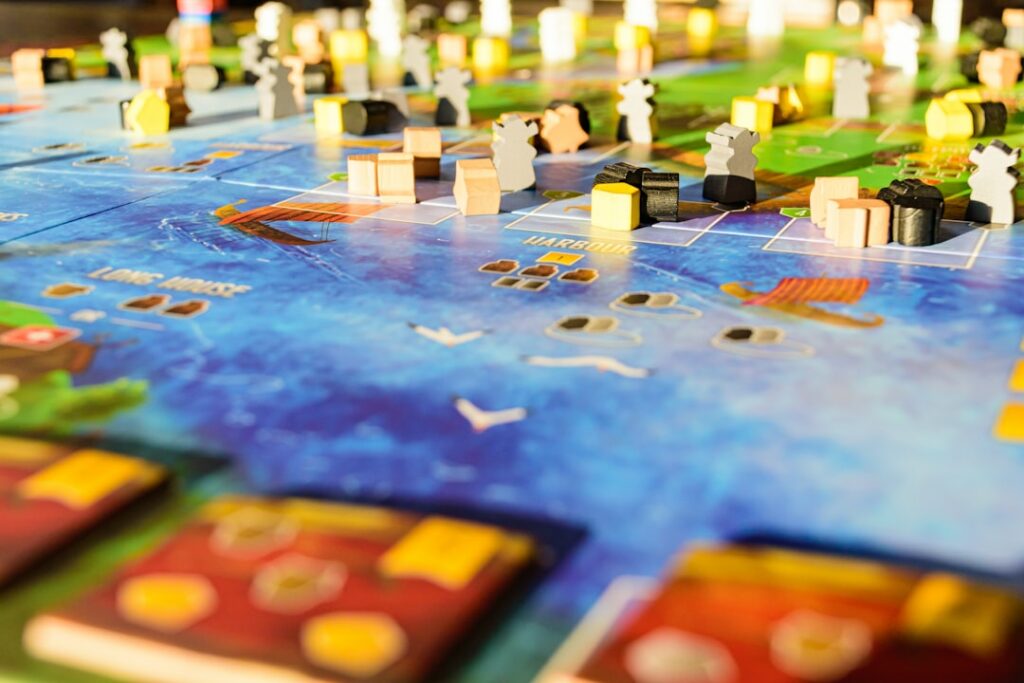Memory exercises are not only important for individuals, but they also play a crucial role in strengthening family bonds. Memory development is essential for all age groups, from young children to adults and seniors. By engaging in memory exercises as a family, everyone can benefit from improved cognitive skills and enhanced memory capacity.
Memory exercises have numerous benefits for individuals of all ages. For young children, memory games can help improve their ability to retain information and enhance their cognitive development. For tweens and teens, memory exercises can boost academic performance by improving their ability to remember and recall information. For adults and seniors, memory-building activities can help maintain cognitive function and delay age-related memory decline.
Key Takeaways
- Memory exercises are important for families to improve cognitive function and strengthen bonds.
- Simple memory games like «I Spy» and matching games can help young children develop memory skills.
- Tweens and teens can benefit from memory exercises like memorizing song lyrics or playing memory card games.
- Adults and seniors can improve memory through activities like crossword puzzles and learning a new language.
- Family game nights can be a fun way to incorporate memory practice into regular routines.
Simple Memory Games for Young Children
Young children have a natural curiosity and eagerness to learn, making it the perfect time to introduce them to memory games. Simple memory games like «Memory Match» or «Simon Says» can be played with young children to improve their memory skills. These games require children to remember patterns, sequences, or instructions, which helps strengthen their memory capacity.
In «Memory Match,» children are presented with a set of cards that are face down. They take turns flipping over two cards at a time, trying to find matching pairs. The objective is to remember the location of each card and find the matching pairs by remembering where they saw each card.
«Simon Says» is another great memory game for young children. In this game, one person takes on the role of «Simon» and gives instructions to the other players. The catch is that the players should only follow the instructions if they are preceded by the phrase «Simon says.» This game requires children to remember the instructions given by «Simon» and only follow them when the correct phrase is used.
Memory Exercises for Tweens and Teens
Tweens and teens often face academic challenges that require strong memory skills. Memory exercises can help them improve their ability to retain and recall information, leading to better academic performance. One effective memory exercise for tweens and teens is the «Memory Palace» technique.
The «Memory Palace» technique involves associating information with specific locations in a familiar place, such as their home or school. For example, if they need to remember a list of vocabulary words, they can mentally place each word in a different room of their house. When they need to recall the words, they can mentally walk through their house and remember where each word is located.
Another memory exercise suitable for tweens and teens is the «Chunking» technique. This technique involves breaking down large amounts of information into smaller, more manageable chunks. For example, if they need to memorize a long string of numbers, they can group them into smaller sets and remember each set individually.
Memory-Building Activities for Adults and Seniors
Memory-building activities are not just for children and teenagers; they are equally important for adults and seniors. Engaging in memory exercises can help maintain cognitive function and delay age-related memory decline. One memory-building activity for adults and seniors is learning a new language.
Learning a new language requires memorizing vocabulary, grammar rules, and sentence structures. This process challenges the brain and helps improve memory capacity. Additionally, learning a new language can also provide social benefits by allowing individuals to communicate with people from different cultures.
Another memory-building activity for adults and seniors is playing musical instruments. Learning to play an instrument requires memorizing notes, chords, and melodies. This not only enhances memory skills but also provides a creative outlet and promotes relaxation.
Incorporating Memory Practice into Family Game Nights
Family game nights are a perfect opportunity to incorporate memory practice into family activities. By playing memory games as a family, everyone can benefit from improved memory skills while enjoying quality time together. There are several memory games that can be played during family game nights.
One popular memory game is «Memory,» also known as «Concentration.» In this game, a set of cards is placed face down, and players take turns flipping over two cards at a time to find matching pairs. The objective is to remember the location of each card and find the matching pairs by remembering where they saw each card.
Another memory game suitable for family game nights is «I Spy.» In this game, one person chooses an object in the room and says, «I spy with my little eye, something that is…» and provides a clue about the object’s color, shape, or location. The other players take turns guessing the object based on the clue provided. This game requires players to remember the clues given and use their memory to guess the correct object.
Creative Ways to Encourage Memory Development in Kids

When it comes to memory development in kids, it is important to make the exercises fun and engaging. By incorporating creativity into memory exercises, children are more likely to enjoy the activities and actively participate. Here are some creative ways to encourage memory development in kids:
1. Storytelling: Encourage children to create and tell stories from memory. This exercise requires them to remember details, characters, and plotlines. They can even act out their stories or draw illustrations to make it more interactive.
2. Scavenger Hunts: Organize scavenger hunts where children have to remember clues and locations to find hidden objects. This activity not only improves their memory skills but also promotes problem-solving and teamwork.
3. Arts and Crafts: Engage children in arts and crafts activities that require them to follow instructions and remember steps. For example, they can create a collage by remembering which materials to use and how to arrange them.
Memory-Boosting Outdoor Activities for the Whole Family
Outdoor activities provide a unique opportunity for memory development while enjoying the benefits of nature. By engaging in memory-boosting outdoor activities as a family, everyone can improve their memory skills while having fun. Here are some outdoor activities that can help boost memory skills:
1. Nature Walks: Take family walks in nature and encourage everyone to observe and remember details about the environment. This can include identifying different plants, animals, or landmarks along the way.
2. Geocaching: Geocaching is a modern-day treasure hunt where participants use GPS coordinates to find hidden containers called geocaches. This activity requires participants to remember the coordinates and clues to locate the geocaches.
3. Outdoor Sports: Engage in outdoor sports like soccer, basketball, or tennis that require players to remember strategies, positions, and rules. These activities not only improve memory skills but also promote physical fitness and teamwork.
Using Technology to Enhance Memory Skills
In today’s digital age, technology can be a valuable tool for enhancing memory skills. There are numerous memory apps and games available that can be used for memory development. Here are some suggestions for using technology to enhance memory skills:
1. Memory Apps: There are several apps available that specifically target memory development. These apps offer various exercises and games designed to improve memory capacity and cognitive function.
2. Brain Training Games: Many brain training games incorporate memory exercises as part of their gameplay. These games challenge players to remember patterns, sequences, or information, helping improve their memory skills.
3. Online Memory Challenges: Participate in online memory challenges or competitions that require individuals to remember and recall information within a certain time limit. These challenges provide a fun and competitive way to enhance memory skills.
Memory Exercises for Special Needs Children and Adults
Memory development is equally important for special needs children and adults. Memory exercises can help improve cognitive function and enhance their ability to retain and recall information. Here are some memory exercises suitable for special needs individuals:
1. Visual Memory Games: Engage in visual memory games that require individuals to remember and recall visual information. This can include matching games, puzzles, or memory cards with pictures.
2. Music Therapy: Music therapy has been shown to improve memory skills in individuals with special needs. Engage in activities that involve singing, playing musical instruments, or listening to music to enhance memory development.
3. Sensory Memory Activities: Incorporate sensory memory activities that engage multiple senses, such as touch, smell, and taste. This can include activities like cooking, gardening, or sensory bins filled with different textures and objects.
Fun and Engaging Memory Challenges for Family Vacations
Family vacations provide a unique opportunity to incorporate memory challenges into the travel experience. By engaging in memory challenges during family vacations, everyone can benefit from improved memory skills while creating lasting memories. Here are some fun and engaging memory challenges for family vacations:
1. Photo Scavenger Hunt: Create a list of specific objects or landmarks that need to be photographed during the vacation. Participants have to remember the list and find the objects or landmarks to take a photo.
2. Destination Trivia: Research interesting facts about the vacation destination and create a trivia game for the family. Participants have to remember the facts and answer questions correctly to earn points.
3. Memory Journal: Encourage each family member to keep a memory journal during the vacation. They can write down their experiences, observations, and memorable moments to remember the trip.
Memory exercises are essential for families as they provide numerous benefits for individuals of all ages. From young children to adults and seniors, engaging in memory exercises can improve cognitive function, enhance academic performance, and delay age-related memory decline. By incorporating memory practice into daily routines, family game nights, outdoor activities, and even vacations, families can strengthen their bonds while improving their memory skills together. So why not start incorporating memory exercises into your family’s daily routine and enjoy the benefits of improved memory capacity?
Incorporating memory exercises into family activities and games can be a fun and effective way to boost cognitive skills for both children and adults. If you’re looking for more tips on developing critical thinking techniques for analytical reasoning, check out this insightful article from Intelligence Snacks & Hacks: «Developing Critical Thinking Techniques for Analytical Reasoning». It provides valuable strategies to enhance your analytical thinking abilities, which can further enhance memory retention and recall.
FAQs
What are memory exercises?
Memory exercises are activities or games that are designed to improve memory skills. These exercises can include anything from memorizing lists of words or numbers to playing memory games that require players to remember specific details.
Why are memory exercises important?
Memory exercises are important because they can help improve cognitive function and prevent memory loss. They can also be a fun way to spend time with family and friends while improving memory skills.
What are some examples of memory exercises?
Some examples of memory exercises include playing memory games like Concentration or Simon, memorizing lists of words or numbers, and practicing visualization techniques to help remember details.
How can memory exercises be incorporated into family activities?
Memory exercises can be incorporated into family activities by playing memory games together, practicing memorization techniques as a group, or even just discussing memories and trying to recall specific details.
What are some benefits of incorporating memory exercises into family activities?
Incorporating memory exercises into family activities can help improve cognitive function, prevent memory loss, and provide a fun and engaging way to spend time together as a family. It can also help improve communication and strengthen relationships.






